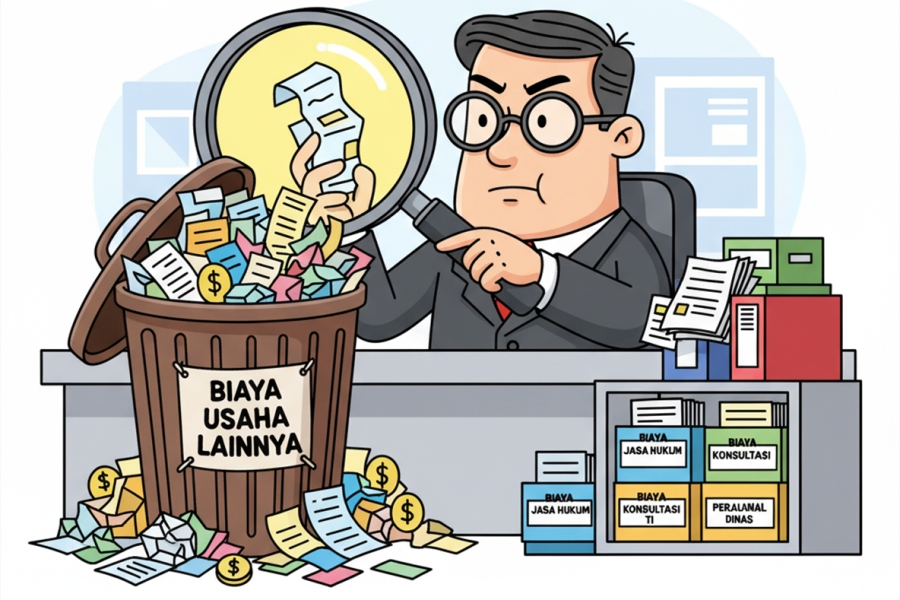
In the accounting realm, the "Other Operating Expenses" account often acts as a practical dumping ground for various operational expenditures. However, from a fiscal perspective, this account is frequently viewed with intense suspicion and becomes a prime target for tax adjustments.
Its general and non-specific nature inherently invites questions about its eligibility as a deduction from gross income. The appeal case of PT AT over a DGT adjustment of Rp1,241,604,167.00 on this account for the Tax Year 2017 offers a clear, clinical lesson on the high fiscal risk associated with using this "catch-all" or "trash can" account.
The main conflict centered on the Taxpayer's failure to meet the strict standard of proof demanded by the tax authority. The DGT's argument rested on two key articles of the Income Tax Law (UU PPh): Article 6 paragraph (1), requiring expenses to relate to the activities of obtaining, collecting, and maintaining (3M) income, and Article 9 paragraph (1), which disallows deductions for personal or consumptive purposes.
The DGT contended that the general nature of the "Other Operating Expenses" account placed a heavier burden of proof on PT AT. The Taxpayer was required to detail every cost component, present meticulous supporting evidence, and provide strong justification. PT AT's failure to provide this breakdown was the basis for the DGT's adjustment.
Conversely, PT AT rejected the adjustment, arguing that all expenses were reasonable and customary for running the company. They claimed to have submitted adequate evidence and dismissed the DGT's assumption of potential personal use as an unfounded accusation.
In ruling on this dispute, the Panel of Judges applied a very high standard of proof. The Judge effectively positioned themselves as an auditor, scrutinizing each cost component individually.
Accepted Costs: Expenses backed by strong documentation and clear business justification—such as contracts and work reports for service fees—were accepted as legitimate deductions.
Rejected Costs: Costs with general, weak, or ambiguous documentation and justification were deemed unable to meet the required burden of proof.
This granular evaluation process logically resulted in the verdict "Partially Granting the Appeal" (Mengabulkan Sebagian), where part of the DGT's adjustment was canceled while the remainder was sustained.
This ruling judicially validates the tax authority's skeptical approach to general expense accounts. The implication for the business world is clear: relying on a holding account like "Other Operating Expenses" is a high-risk accounting management strategy.
The Court has signaled that cost claims will not be accepted in bulk (secara gelondongan); every rupiah must be individually and transparently accounted for. This necessitates an urgent move for companies to be more disciplined in the codification and classification of their operational expenses.
The main lesson from the PT AT case is that the "Other Operating Expenses" account is not a safe accounting solution, but a source of potential future disputes. Taxpayers are highly recommended to proactively reclassify their chart of accounts, break down general accounts into more descriptive ones, and implement strict internal Standard Operating Procedures (SOPs). This will ensure that every expenditure, no matter how small, is constantly accompanied by clear business justification and complete supporting documentation, enabling it to withstand the rigorous scrutiny of a tax examination.
Comprehensive and Complete Analysis of This Dispute is Available Here